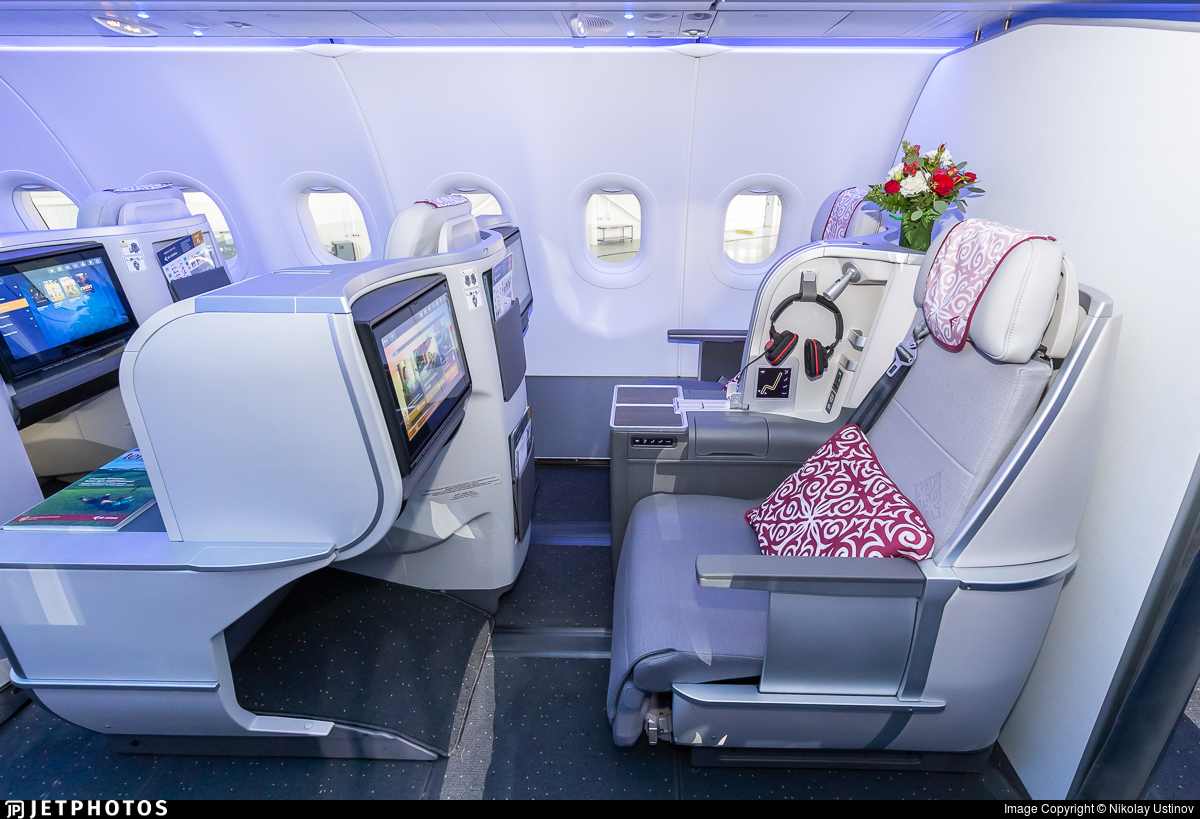Air Astana has just taken delivery of its ninth Airbus A321LR, the first long-haul version of the A321neo and a true flying and commercial testbed for the Airbus A321XLR.
Airbus A321LR: commercial testbed for the A321XLR
With the passage of time and the Covid pandemic, everyone has forgotten about the Airbus A321LR, the first long-haul version of the A321neo offered by Airbus before the launch of the A321XLR in June 2019 and which can go even further (8,700 km). The A321LR is a true flying and commercial testbed for the A321XLR, which will be delivered from early 2024. With now nine aircraft in the fleet, Air Astana will be useful to Airbus teams in terms of feedback. Air Astana has chosen a configuration for 166 passengers divided into two classes: 16 seats in Business Class (see photo) and 150 seats in Economy Class.
Air Astana's Airbus A321LR network
The Airbus A321LR's 7,400km of range allows Air Astana to serve destinations from and to Almaty, Kazakhstan, such as Antalya, Bangkok, Dubai, Frankfurt, Istanbul, London, Phuket and Sharm El Sheikh. With the A321XLR's 8,700 km, Air Astana could further diversify its network. It will be interesting to see how many A321LR operators like Air Astana will or will not switch to the A321XLR next. This is already the case with JetBlue Airways, whose A321LRs offer the least dense passenger cabin with only 138 seats and chairs divided into two classes.
From 138 to 220 passengers on the Airbus A321LR
The cabin layouts chosen by Airbus A321LR operators range from 138 to 220 passengers. The most crowded cabin is Arkia's with 220 passengers in single class, followed by Air Arabia's 215 passengers. SAS is after JetBlue with 157 passengers but in three classes (22 in Business Class, 12 in Eco Premium and 123 in Economy). TAP Air Portugal had also chosen three classes with more passengers (171). All other operators opted for the two-class configuration with different densities: 166 passengers for Air Astana and Gulf Air, 184 for Aer Lingus, 190 at Azores Airlines and 199 for Air Transat. The case of La Compagnie is special: the carrier is in a niche market focusing on Premium customers with only 76 seats.
Découvrez cet article sur Air&Cosmos

